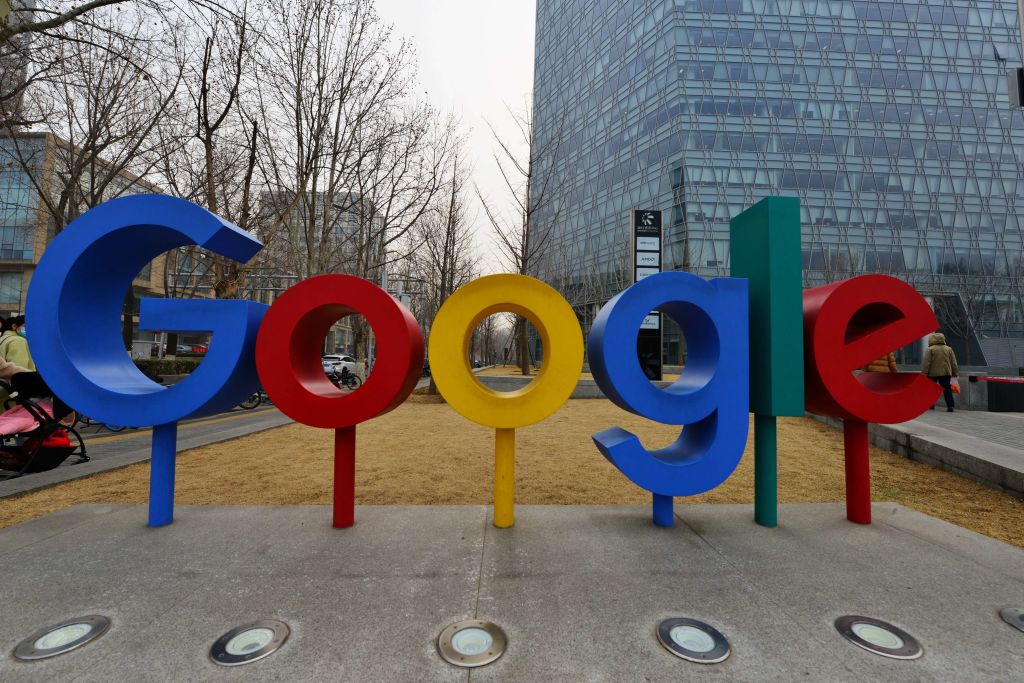Forget banks—third-quarter earnings season doesn’t start until Wednesday, when Netflix and Tesla report.
Since Alcoa’s (ticker: AA) abdication, the kickoff of earnings season has been assigned to the U.S.’s big banks, including JPMorgan Chase (JPM) and Citigroup (C), which reported earnings on Friday. This despite the fact that some large, prominent companies, including PepsiCo (PEP) and Delta Air Lines (DAL), disclosed their results earlier in the week.
Don’t expect the overall market to care too much about how the banks do. The S&P 500 financials sector, which includes banks and insurers but also Visa (V) and Mastercard (MA), totals 12.7% of the index’s market value. Its earnings contribution is expected to be larger, at 17.4% of third-quarter earnings, according to data from Refinitiv. But these days, the banks are less a reflection of the U.S. economy than they are of monetary and regulatory policy, which take up a good portion of their earnings calls.
No, earnings season doesn’t really get started until Wednesday, when the first of the large technology-oriented stocks that have driven the S&P 500 this year are set to report. That would be Tesla (TSLA) and Netflix (NFLX), followed by Alphabet (GOOGL), Microsoft (MSFT), Meta Platforms (META), Amazon.com (AMZN) next week, and then Apple (AAPL) on Nov. 2. Nvidia’s (NVDA) fiscal third quarter doesn’t end until Oct. 31, and it will report in late November.
The Magnificent Eight punch well above their fundamental weight, thanks to premium valuation multiples. The group makes up roughly 30% of the S&P 500’s market capitalisation but is expected to contribute just 10% of the index’s third-quarter sales and 16% of earnings, according to Refinitiv. Hits and misses from their results will prompt outsize moves in the index.
Take Meta, which Wall Street analysts expect to report $8.0 billion in earnings for the third quarter, up 120% from the same period last year. That’s nearly a full percentage-point contribution to the S&P 500’s overall expected earnings growth in the quarter.
Nvidia is responsible for another 1.5 percentage point of expected growth, Amazon for 0.6 point, and Alphabet and Microsoft for 0.5 point each. With growth rates like those, how well the biggest companies on the market do could meaningfully swing overall S&P 500’s earnings growth one way or another.
There’s a slim margin for error: Analysts are predicting 1.3% year-over-year earnings growth from the S&P 500 in the third quarter, per Refinitiv. The biggest expected individual detractors from the index’s year-over-year earnings growth are Exxon Mobil (XOM)—a 1.9-percentage-point drag—and Pfizer (PFE), a 1.5-point drag.
That’s before considering the potential impact to investor sentiment from Big Tech’s results. In a year dominated by macro themes, the enthusiasm around artificial intelligence has been one of the greatest bullish drivers of the stock market. Nvidia’s results are showing the benefit already, while other companies are more likely to be merely talking up the technology’s transformative potential.
Hype can only go so far—eventually even Microsoft, Meta, and Alphabet will need to show that their AI investments are yielding a positive return. The third quarter of 2023 is still early innings in the AI revolution, but signs of progress will be cheered by investors, and may be necessary to justify many of the Magnificent Eight’s huge rallies this year.
Third-quarter earnings season may have officially kicked off, but the real action has yet to begin.
 Copyright 2020, Dow Jones & Company, Inc. All Rights Reserved Worldwide. LEARN MORE
Copyright 2020, Dow Jones & Company, Inc. All Rights Reserved Worldwide. LEARN MORE
What a quarter-million dollars gets you in the western capital.
Alexandre de Betak and his wife are focusing on their most personal project yet.
CIOs can take steps now to reduce risks associated with today’s IT landscape
As tech leaders race to bring Windows systems back online after Friday’s software update by cybersecurity company CrowdStrike crashed around 8.5 million machines worldwide, experts share with CIO Journal their takeaways for preparing for the next major information technology outage.
Be familiar with how vendors develop, test and release their software
IT leaders should hold vendors deeply integrated within IT systems, such as CrowdStrike , to a “very high standard” of development, release quality and assurance, said Neil MacDonald , a Gartner vice president.
“Any security vendor has a responsibility to do extensive regression testing on all versions of Windows before an update is rolled out,” he said.
That involves asking existing vendors to explain how they write software, what testing they do and whether customers may choose how quickly to roll out an update.
“Incidents like this remind all of us in the CIO community of the importance of ensuring availability, reliability and security by prioritizing guardrails such as deployment and testing procedures and practices,” said Amy Farrow, chief information officer of IT automation and security company Infoblox.
Re-evaluate how your firm accepts software updates from ‘trusted’ vendors
While automatically accepting software updates has become the norm—and a recommended security practice—the CrowdStrike outage is a reminder to take a pause, some CIOs said.
“We still should be doing the full testing of packages and upgrades and new features,” said Paul Davis, a field chief information security officer at software development platform maker JFrog . undefined undefined Though it’s not feasible to test every update, especially for as many as hundreds of software vendors, Davis said he makes it a priority to test software patches according to their potential severity and size.
Automation, and maybe even artificial intelligence-based IT tools, can help.
“Humans are not very good at catching errors in thousands of lines of code,” said Jack Hidary, chief executive of AI and quantum company SandboxAQ. “We need AI trained to look for the interdependence of new software updates with the existing stack of software.”
Develop a disaster recovery plan
An incident rendering Windows computers unusable is similar to a natural disaster with systems knocked offline, said Gartner’s MacDonald. That’s why businesses should consider natural disaster recovery plans for maintaining the resiliency of their operations.
One way to do that is to set up a “clean room,” or an environment isolated from other systems, to use to bring critical systems back online, according to Chirag Mehta, a cybersecurity analyst at Constellation Research.
Businesses should also hold tabletop exercises to simulate risk scenarios, including IT outages and potential cyber threats, Mehta said.
Companies that back up data regularly were likely less impacted by the CrowdStrike outage, according to Victor Zyamzin, chief business officer of security company Qrator Labs. “Another suggestion for companies, and we’ve been saying that again and again for decades, is that you should have some backup procedure applied, running and regularly tested,” he said.
Review vendor and insurance contracts
For any vendor with a significant impact on company operations , MacDonald said companies can review their contracts and look for clauses indicating the vendors must provide reliable and stable software.
“That’s where you may have an advantage to say, if an update causes an outage, is there a clause in the contract that would cover that?” he said.
If it doesn’t, tech leaders can aim to negotiate a discount serving as a form of compensation at renewal time, MacDonald added.
The outage also highlights the importance of insurance in providing companies with bottom-line protection against cyber risks, said Peter Halprin, a partner with law firm Haynes Boone focused on cyber insurance.
This coverage can include protection against business income losses, such as those associated with an outage, whether caused by the insured company or a service provider, Halprin said.
Weigh the advantages and disadvantages of the various platforms
The CrowdStrike update affected only devices running Microsoft Windows-based systems , prompting fresh questions over whether enterprises should rely on Windows computers.
CrowdStrike runs on Windows devices through access to the kernel, the part of an operating system containing a computer’s core functions. That’s not the same for Apple ’s Mac operating system and Linux, which don’t allow the same level of access, said Mehta.
Some businesses have converted to Chromebooks , simple laptops developed by Alphabet -owned Google that run on the Chrome operating system . “Not all of them require deeper access to things,” Mehta said. “What are you doing on your laptop that actually requires Windows?”















